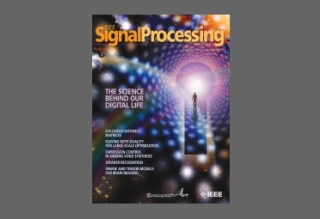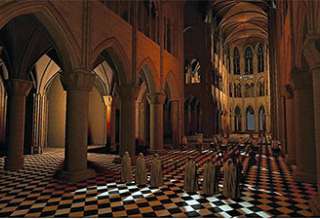SPM
Machine Learning for Volcano-Seismic Signals
Environmental monitoring is a topic of increasing interest, especially concerning the matter of natural hazards prediction. Regarding volcanic unrest, effective methodologies along with innovative and operational tools are needed to monitor, mitigate, and prevent risks related to volcanic hazards.
Subsurface Exploration: Recent Advances in Geo-Signal Processing, Interpretation, and Learning
For centuries, humans have been exploring the subsurface structure of planet Earth. Several Earth geophysical applications, such as mining, earthquake studies, and oil and gas exploration, have driven research that produced, over the years, ground-breaking theories and innovative technologies that image Earth’s subsurface. The pursuit is ongoing with an increasing desire to have higher-resolution subsurface models and images. Signal processing, data interpretation, and modeling have been the cornerstones of such innovations.
Signal Processing Supports a New Wave of Audio Research
Spatial and immersive audio mimics real-world sound environments
In an era of ubiquitous video, audio is often relegated to a secondary role. Yet electronic audio in all of its various forms is now staging a strong comeback as listeners, increasingly dissatisfied with the output of highly compressed audio files and streams, seek higher sound quality on all types of fixed and mobile platforms.
SPS Fellows and Award Winners Recognized
In this column of IEEE Signal Processing Magazine, 39 IEEE Signal Processing Society (SPS) members are recognized as IEEE Fellows and award recipients are announced.
39 SPS members elevated to Fellow:
Each year, the IEEE Board of Directors confers the grade of Fellow on up to one-tenth of 1% of the voting Members. To qualify for consideration, an individual must have been a Member, normally for five years or more, and a Senior Member at the time for nomination to Fellow. The grade of Fellow recognizes unusual distinction in IEEE’s designated fields.
Big Ideas or Big Data?
Many ask me what signal processing should be doing in the age of big data. My answer is clear: signal processing should continue to generate big ideas. Big ideas for big data.
Our discipline has always advanced ingenious methods and theories, irrespective of the size of the data: small or big. Many of these ideas permeate disciplines far and wide, ranging from imaging to video; speech processing to coding and communications, forensics, security, and privacy; and also social media, machine learning, and data science.






